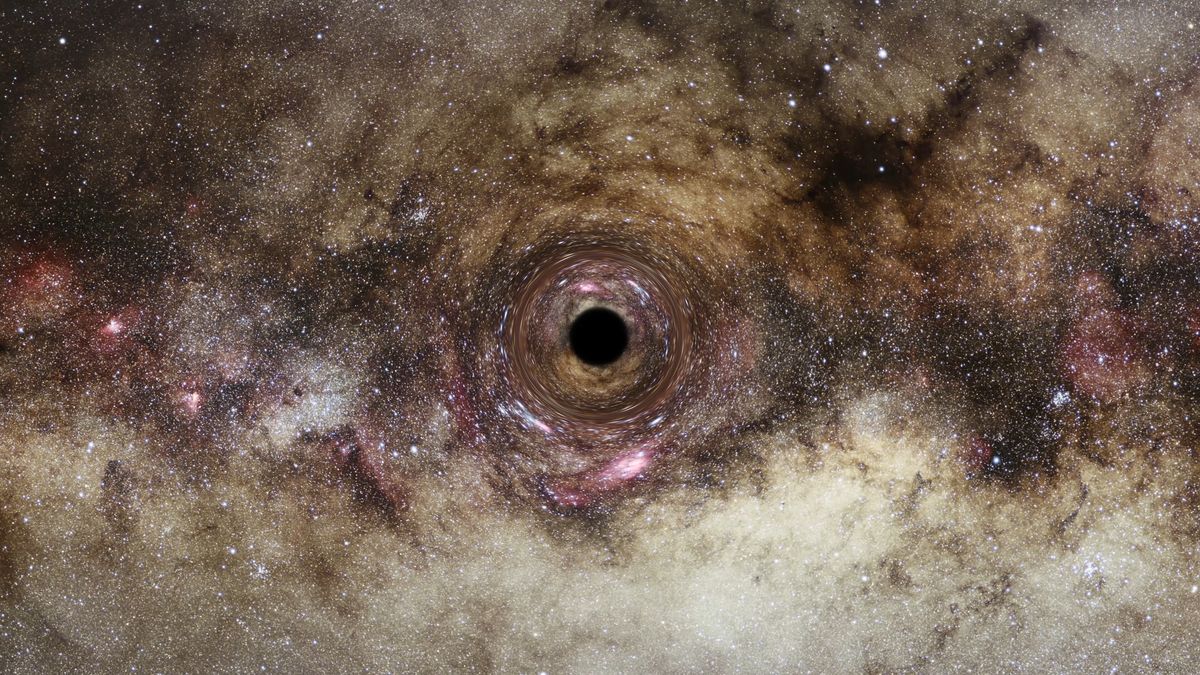Science
Related: About this forumGargantuan black hole 30 billion times the mass of the sun is one of the largest ever discovered
By Ben Turner published 1 day ago
Astronomers used gravitational lensing and supercomputers to identify the colossal black hole, which is among the largest ever found.

An artist's impression of a pitch-dark black hole warping gray space-time around it
An artist's impression of a black hole warping space-time around it. Astronomers used this phenomenon, called gravitational lensing, to detect one of the largest black holes ever found in the universe. (Image credit: ESA/Hubble, Digitized Sky Survey, Nick Risinger (skysurvey.org), N. Bartmann)
Astronomers have discovered one of the largest black holes ever found — an ultramassive monster roughly 30 billion times the mass of the sun — using a space-time trick predicted by Albert Einstein.
The colossal black hole, which lurks 2.7 billion light-years from Earth in the brightest galaxy of the galaxy cluster Abell 1201, was given away by a giant arc of warped light from a background galaxy that had been stretched and smudged by the black hole's immense gravitational field.
The cosmic monster exists "on the upper limit of how large we believe black holes can theoretically become," the astronomers who detected it said in a statement. But it could only be the first of many cosmic behemoths that the team could spot across the night sky using this technique. Finding the ultramassive black holes is just the first step in figuring out how these beasts grow so large, the researchers wrote in a paper published March 28 in the journal Monthly Notices of the Royal Astronomical Society.
Einstein's theory of general relativity describes how massive objects warp the fabric of space-time. Einstein explained that gravity isn't produced by an unseen force but is simply our experience of space-time curving and distorting in the presence of matter and energy.
More:
https://www.livescience.com/gargantuan-black-hole-30-billion-times-the-mass-of-the-sun-is-one-of-the-largest-ever-discovered
Bernardo de La Paz
(51,884 posts)Answering my own question, I looked it up, and it seems that super-massive black holes make nearby gasses so hot that they blow most of the nearby matter away and starve the hole.
Turbineguy
(38,607 posts)for trump supporters to go.